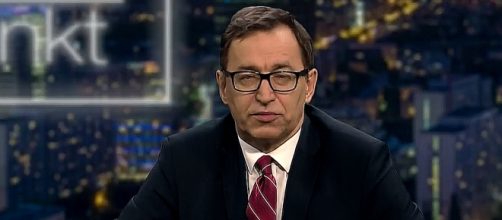There is a lot of discussion around the speech law, at least in Israel, Russia and, of course, in Poland itself. Censoring free speech seems to be something normal and justified nowadays, including for some democratic governments in Europe. But, what is the problem?
The amendment of the law establishes the rules of the Institute of National Remembrance – Commission for the Prosecution of Crimes against the Polish Nation
The Institute (Polish abbreviation: IPN ) was founded in 1999 as a Polish government-affiliated scientific and political organisation, with many prerogatives, including prosecution powers.
According to the legislation enacted by the Polish Parliament, IPN investigates both Nazi and Communist crimes committed in Poland between 1939 and 1989, documents its scientific discoveries etc.
German war crimes were committed in Poland 1939 - 1945, the worst Communist crimes till 1956
Therefore the persecution of the perpetrators of these cruel crimes against the Polish people is now impossible. It's theoretically possible that this Institute would be able to acknowledge criminal liability for at least some people responsible for the shooting of industrial workers in Poland during the cracking down of the strikes which occurred in 1970 and 1981.
In practice, however, it can’t be done because of the Polish Round Table Agreement.
One of its participants was the present-time informal Polish leader, Jarosław Kaczyński. A simple deal was made; the Communist rule was peacefully abolished and in reward personal safety for the Communist party members was guaranteed.
All that remained for the IPN is to play the role in the so called politics of memory
Last year the country's de-communisation law, envisaging the demolition of almost all People's Republic of Poland monuments, including memorials erected in commemoration of the liberation of Poland from the Third Reich's occupation, has been passed in the Polish parliament. The IPN played a crucial role in this.
It was justified by the leaders of the IPN as follows: "Dismantling the Red Army monuments it is not directed against Russia and Russians.
Poles are well aware that millions of Russians were victims of the same inhuman totalitarianism. We are convinced that all victims deserve to be remembered and respected. It is this respect that requires the removal of monuments constituting the residue of propaganda and falsifying history."
Just days ago Polish parliament enacted the Holocaust speech law
It was justified by the IPN chief executive officer Jarosław Szarek himself. Speaking in an interview with the Polish international television channel Polonia he said: "This amendment of the law is necessary because the Polish state must have some tool to defend its good name. There were no Polish concentration camps.
This term not only means falsifying history, but is also extremely unfair, because it's morally wrong and evil to judge in such a way the history of Poland after 1939."
Bad or good – my country!
In most of the European countries, and also in the British Dominions the leader of the governing political party is also the leader of their country. We have in Poland an informal and at the same time very strong leader now. No one could start this campaign if he had not authorised it.
He wants to strengthen his personal power and therefore he seems to need a repeated change in public sentiment on his and his party's favour. His very active Politics Of Memory is a program which appeals to the great and heroic Polish past, also our national dignity. Putin gave the Russians their first crusade, and his counterpart in Poland gave the Polish people now a similar common, noble goal. It's a brilliant idea, even if not a very polished one.


